Series: Lupus in a Victimless Life

This is the second discussion in a series about being a Lupus patient or someone with any chronic illness, without becoming a victim. Society tells us we are victims of the things that make life difficult, but do we really need to see ourselves that way? No, not even for a minute!
Having Lupus should not mean being victim or powerless against it. Although we cannot choose whether we have Lupus, determining not to be its victim is matter of mindset and even a choice. When special events or activities in our life disrupt our normal routines and schedules, it becomes very important to be on guard for signs of physical or other stress. Stress or fatigue may signal increased risk of bringing on a flare of lupus symptoms.
 A recent trip to attend a business conference was an excellent example of this type of self-management that often minimizes the impact of potential lupus flares. Recently joining about 1,000 peers from all over the nation at an educational conference in Washington, D.C., we gathered at a large resort on the Potomac River for five days of classes and continuing legal management education. With breakfast starting very early, and classes going all day long, by sunset, everyone was tired. There were many extra steps going to and fro from class to class, and every situation and conversation was a new experience. This type of event interacting with countless people and ideas easily causes both physical and emotional fatigue. This conference was no exception.
A recent trip to attend a business conference was an excellent example of this type of self-management that often minimizes the impact of potential lupus flares. Recently joining about 1,000 peers from all over the nation at an educational conference in Washington, D.C., we gathered at a large resort on the Potomac River for five days of classes and continuing legal management education. With breakfast starting very early, and classes going all day long, by sunset, everyone was tired. There were many extra steps going to and fro from class to class, and every situation and conversation was a new experience. This type of event interacting with countless people and ideas easily causes both physical and emotional fatigue. This conference was no exception.
 Selecting how to best spend the free time in the evenings included a wide array of choices, from dining with old and new found friends to taking shopping trips, going on walks, taking in local entertainment. The conservative choice was spending the night quietly in a hotel room reading a book or eating a takeout meal, while resting with feet propped on a pillow. Predictably, most evenings were spent pursuing a sedentary evening that helped prevent over-exertion, while also promoting restoration necessary before the next day’s demanding schedule. Wisdom is listening to the physical needs of your body, and recognizing without angst that lupus narrows those limits. It seemed the best idea was the wise one.
Selecting how to best spend the free time in the evenings included a wide array of choices, from dining with old and new found friends to taking shopping trips, going on walks, taking in local entertainment. The conservative choice was spending the night quietly in a hotel room reading a book or eating a takeout meal, while resting with feet propped on a pillow. Predictably, most evenings were spent pursuing a sedentary evening that helped prevent over-exertion, while also promoting restoration necessary before the next day’s demanding schedule. Wisdom is listening to the physical needs of your body, and recognizing without angst that lupus narrows those limits. It seemed the best idea was the wise one.
 But, of course, a little fun, within physical limits was necessary! One night, opting to accept the invitation to take a sunset walk with attendees from our local chapter sounded fun! Midway through our jaunt, it suddenly seemed best to sit and rest midway while the others in our group explored shops at the bottom of a long, long flight of steps heading down toward the shore. At complete peace with self and lupus limitations, skipping the stairs was an instant no-brainer. Besides, it was a great opportunity to do some great people-watching. When everyone else reached the top of the stairway again and reunited our group, we finished the second half of our twilight stroll through the remaining street level shops near our hotel. The activity was pleasantly enough, without being too much.
But, of course, a little fun, within physical limits was necessary! One night, opting to accept the invitation to take a sunset walk with attendees from our local chapter sounded fun! Midway through our jaunt, it suddenly seemed best to sit and rest midway while the others in our group explored shops at the bottom of a long, long flight of steps heading down toward the shore. At complete peace with self and lupus limitations, skipping the stairs was an instant no-brainer. Besides, it was a great opportunity to do some great people-watching. When everyone else reached the top of the stairway again and reunited our group, we finished the second half of our twilight stroll through the remaining street level shops near our hotel. The activity was pleasantly enough, without being too much.
Despite the Limitations of Lupus
 The onset of Lupus clearly changes a person’s life, sometimes very dramatically. Whether their presenting symptoms are arthritis, rashes, or perhaps a more serious aspect of Lupus, their life definitely changes. Often, many lupus patients experience fatigue, pain, and other symptoms long before they ever receive the diagnosis.
The onset of Lupus clearly changes a person’s life, sometimes very dramatically. Whether their presenting symptoms are arthritis, rashes, or perhaps a more serious aspect of Lupus, their life definitely changes. Often, many lupus patients experience fatigue, pain, and other symptoms long before they ever receive the diagnosis.
After learning that Lupus is the cause of their medical problems, a person often has a great sense of relief, as well as hope that things will improve. The average patient experiences Lupus symptoms four to six years and sees up to the same number of doctors before getting a clear diagnosis of Lupus. Many describe the great sense of relief they feel after finally getting a one word diagnosis to describe their collection of multiple medical symptoms.
 With the diagnosis comes the welcome change of a decisive treatment plan and prescriptions for well-established treatments to help control the lupus. Often the counsel from doctors and other knowledgeable counselors encourage changes in lifestyle and attentiveness to recognizing physical limitations. Each lupus patient has their own unique set of symptoms and circumstances influencing their quality of life, despite lupus. In the same patient, flares of their Lupus may suddenly narrow those limitations and frustrate their life goals and plans.
With the diagnosis comes the welcome change of a decisive treatment plan and prescriptions for well-established treatments to help control the lupus. Often the counsel from doctors and other knowledgeable counselors encourage changes in lifestyle and attentiveness to recognizing physical limitations. Each lupus patient has their own unique set of symptoms and circumstances influencing their quality of life, despite lupus. In the same patient, flares of their Lupus may suddenly narrow those limitations and frustrate their life goals and plans.
Over work or inadequate rest can quickly bring on extreme fatigue and lupus flare, so it is critical to learn to perceive physical, psychological, and spiritual signs of weariness, and then to take quick actions to retract the limits temporarily to quash or prevent an oncoming flare of lupus. For many patients, the onset of extreme fatigue is the first symptom as a flare is starting, so becoming intentional about managing social commitments and activity in balance with physical stamina can go a long, long way to minimizing the length and severity of flares, when they do occur (and they will!).
 Living within the limits of Lupus may involve a strict regimen of medications, laboratory tests, and medical appointments, along with costs that that restrict a household budget. Moderate physical exercise can help increase the physical limitations by encouraging good circulation and promoting tissue health and repair. Adequate sleep becomes invaluable in fighting many of the affects of lupus, and can diminish some of the morning mental clouding that many patients experience daily. Communicating with the rheumatologist becomes very important if arthritis or neuropathy pain disrupts sleep, and being willing to ask for and take pain medications can be essential to fighting the negative effects of lupus.
Living within the limits of Lupus may involve a strict regimen of medications, laboratory tests, and medical appointments, along with costs that that restrict a household budget. Moderate physical exercise can help increase the physical limitations by encouraging good circulation and promoting tissue health and repair. Adequate sleep becomes invaluable in fighting many of the affects of lupus, and can diminish some of the morning mental clouding that many patients experience daily. Communicating with the rheumatologist becomes very important if arthritis or neuropathy pain disrupts sleep, and being willing to ask for and take pain medications can be essential to fighting the negative effects of lupus.
 All in all, we can choose to make the most of what we have, despite lupus, and accept that lupus may make our life and limitations different than others. Take a the time to you need to slow down, without letting this need frustrate you. In the stillness of those quieter moments, focus on the blessings around you, and determine to embrace your limitations rather than becoming a victim of them. Perhaps consider these thoughts penned by Paul of Tarsus, who also had a life-long chronic illness but embraced the ideas that his weaknesses and limitations were a blessing. He wished his illness would go away, but he was no victim!
All in all, we can choose to make the most of what we have, despite lupus, and accept that lupus may make our life and limitations different than others. Take a the time to you need to slow down, without letting this need frustrate you. In the stillness of those quieter moments, focus on the blessings around you, and determine to embrace your limitations rather than becoming a victim of them. Perhaps consider these thoughts penned by Paul of Tarsus, who also had a life-long chronic illness but embraced the ideas that his weaknesses and limitations were a blessing. He wished his illness would go away, but he was no victim!
 “For this thing I besought the Lord thrice, that it might depart from me. And he said unto me, My grace is sufficient for thee: for my strength is made perfect in weakness. Most gladly therefore will I rather glory in my infirmities, that the power of Christ may rest upon me. Therefore I take pleasure in infirmities, in reproaches, in necessities, in persecutions, in distresses for Christ’s sake: for when I am weak, then am I strong.” 2 Corinthians 12:7-10, KJV
“For this thing I besought the Lord thrice, that it might depart from me. And he said unto me, My grace is sufficient for thee: for my strength is made perfect in weakness. Most gladly therefore will I rather glory in my infirmities, that the power of Christ may rest upon me. Therefore I take pleasure in infirmities, in reproaches, in necessities, in persecutions, in distresses for Christ’s sake: for when I am weak, then am I strong.” 2 Corinthians 12:7-10, KJV
 Where can I get reliable information about Lupus and COVID-19? The Internet is simply swarming with articles discussing Lupus and giving incredible attention on the commonly used lupus medication Plaquenil (Hydroxychloroquine). It can be extremely difficult right now to find definitive and accurate information about coronavirus issues that focus specifically on the needs and interests of Lupus patients.
Where can I get reliable information about Lupus and COVID-19? The Internet is simply swarming with articles discussing Lupus and giving incredible attention on the commonly used lupus medication Plaquenil (Hydroxychloroquine). It can be extremely difficult right now to find definitive and accurate information about coronavirus issues that focus specifically on the needs and interests of Lupus patients.






 Today was somewhat like yesterday, and but this month is certainly not starting out like last month did! After over six weeks of working mostly from home as a telecommuter, I am finally starting to get the knack of connecting with support staff and colleagues who are not down the hall from me. We have rediscovered the original purpose for telephones – conversation. But, it does not seem quite right to call this the new normal. Something in me just refuses to accept the idea of living in this state of isolation and social distancing forever! Perhaps it is more aptly described as longing for normal. Whatever normal is, it is not this!
Today was somewhat like yesterday, and but this month is certainly not starting out like last month did! After over six weeks of working mostly from home as a telecommuter, I am finally starting to get the knack of connecting with support staff and colleagues who are not down the hall from me. We have rediscovered the original purpose for telephones – conversation. But, it does not seem quite right to call this the new normal. Something in me just refuses to accept the idea of living in this state of isolation and social distancing forever! Perhaps it is more aptly described as longing for normal. Whatever normal is, it is not this! The only office mates around our water cooler are my husband, often seated at his desk facing me from the other side of our home office, and a couple of twelve pound furry friends. Annie, our adopted rescue dog, has house privileges, unlike her dearest friend “Porch Cat” who adopted the three of us, perhaps because we came with a large back porch, an attractive patch of grass, and a few tempting flower beds. The cat unfortunately never learned house manners and is forever banished to the yard. He would likely wreck havoc on our leather couches and rugs. The four of us are quite a rag-tag workforce!
The only office mates around our water cooler are my husband, often seated at his desk facing me from the other side of our home office, and a couple of twelve pound furry friends. Annie, our adopted rescue dog, has house privileges, unlike her dearest friend “Porch Cat” who adopted the three of us, perhaps because we came with a large back porch, an attractive patch of grass, and a few tempting flower beds. The cat unfortunately never learned house manners and is forever banished to the yard. He would likely wreck havoc on our leather couches and rugs. The four of us are quite a rag-tag workforce! Perhaps instead, Annie and Porch Cat would like to have their canine and feline performance evaluated for determining their merit pay increases. Would they be more playful and fulfilled if they received an extra half-ounce of dog or cat chow daily in recognition of their essential contributions to the team?
Perhaps instead, Annie and Porch Cat would like to have their canine and feline performance evaluated for determining their merit pay increases. Would they be more playful and fulfilled if they received an extra half-ounce of dog or cat chow daily in recognition of their essential contributions to the team?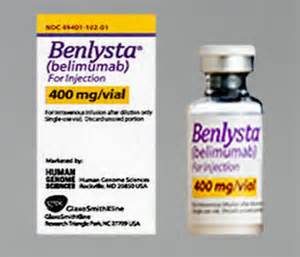 It has almost been a month since my negative COVID-19 test, the results received after recovering from a rough bout of mid-February bronchitis, and just in time for approval to go ahead with my March Benlysta infusion. I cannot remember spending this many days in my home, except after the birth of each of my children. There is much uncertainty, and I hear a common thread in the voices of my employees: fear of an unknown future.
It has almost been a month since my negative COVID-19 test, the results received after recovering from a rough bout of mid-February bronchitis, and just in time for approval to go ahead with my March Benlysta infusion. I cannot remember spending this many days in my home, except after the birth of each of my children. There is much uncertainty, and I hear a common thread in the voices of my employees: fear of an unknown future. Some events are like a plumb line or reference point running through the experience of everyone in a culture. For us in the U.S. who remember the early 1960s, we think back to answer the question, “Where were you when you heard that JFK (President, John F. Kennedy) was shot?” Although I was only five, I remember standing in my mother’s living room as she and other mothers from the neighborhood watched television and cried together. The other event is 911. My children and I stood dumbfounded that morning as we watched the news coverage of an airplane, and then a second fly into the New York twin towers. That moment we saw the towers collapse evoked emotions I will never forget, and hope to never experience again.
Some events are like a plumb line or reference point running through the experience of everyone in a culture. For us in the U.S. who remember the early 1960s, we think back to answer the question, “Where were you when you heard that JFK (President, John F. Kennedy) was shot?” Although I was only five, I remember standing in my mother’s living room as she and other mothers from the neighborhood watched television and cried together. The other event is 911. My children and I stood dumbfounded that morning as we watched the news coverage of an airplane, and then a second fly into the New York twin towers. That moment we saw the towers collapse evoked emotions I will never forget, and hope to never experience again.

 In my life there have been three times that the moment of possible death blocked my path. In each of those moments, the soberness of mortality and the awareness of God’s presence consumed me. My heart’s cry echoed the words of Job, ” though He slay me, yet will I trust Him.” Each time, God delivered me, but I had no control of the outcome. That was up to God! My choice now is to trust in God, regardless the threat of COVID-19. I will strive to let this mindset of faith and trust be the substance of my normal life.
In my life there have been three times that the moment of possible death blocked my path. In each of those moments, the soberness of mortality and the awareness of God’s presence consumed me. My heart’s cry echoed the words of Job, ” though He slay me, yet will I trust Him.” Each time, God delivered me, but I had no control of the outcome. That was up to God! My choice now is to trust in God, regardless the threat of COVID-19. I will strive to let this mindset of faith and trust be the substance of my normal life. Valentine’s Day was a telecommute Friday, at the end of an odd week. Mid-week saw a couple of days diverted due to a sudden respiratory infection, but after seeing the doctor and taking some antibiotics, all was much better.
Valentine’s Day was a telecommute Friday, at the end of an odd week. Mid-week saw a couple of days diverted due to a sudden respiratory infection, but after seeing the doctor and taking some antibiotics, all was much better.

 Counting our blessings, we finished off the movie with popcorn, red vines, and cola. Tossing an occasional piece of popcorn to little Annie dog, we enjoyed a quiet lovely evening filled with talk of lupus, laughter, and loving support.
Counting our blessings, we finished off the movie with popcorn, red vines, and cola. Tossing an occasional piece of popcorn to little Annie dog, we enjoyed a quiet lovely evening filled with talk of lupus, laughter, and loving support.
 A recent trip to attend a business conference was an excellent example of this type of self-management that often minimizes the impact of potential lupus flares. Recently joining about 1,000 peers from all over the nation at an educational conference in Washington, D.C., we gathered at a large resort on the Potomac River for five days of classes and continuing legal management education. With breakfast starting very early, and classes going all day long, by sunset, everyone was tired. There were many extra steps going to and fro from class to class, and every situation and conversation was a new experience. This type of event interacting with countless people and ideas easily causes both physical and emotional fatigue. This conference was no exception.
A recent trip to attend a business conference was an excellent example of this type of self-management that often minimizes the impact of potential lupus flares. Recently joining about 1,000 peers from all over the nation at an educational conference in Washington, D.C., we gathered at a large resort on the Potomac River for five days of classes and continuing legal management education. With breakfast starting very early, and classes going all day long, by sunset, everyone was tired. There were many extra steps going to and fro from class to class, and every situation and conversation was a new experience. This type of event interacting with countless people and ideas easily causes both physical and emotional fatigue. This conference was no exception. Selecting how to best spend the free time in the evenings included a wide array of choices, from dining with old and new found friends to taking shopping trips, going on walks, taking in local entertainment. The conservative choice was spending the night quietly in a hotel room reading a book or eating a takeout meal, while resting with feet propped on a pillow. Predictably, most evenings were spent pursuing a sedentary evening that helped prevent over-exertion, while also promoting restoration necessary before the next day’s demanding schedule. Wisdom is listening to the physical needs of your body, and recognizing without angst that lupus narrows those limits. It seemed the best idea was the wise one.
Selecting how to best spend the free time in the evenings included a wide array of choices, from dining with old and new found friends to taking shopping trips, going on walks, taking in local entertainment. The conservative choice was spending the night quietly in a hotel room reading a book or eating a takeout meal, while resting with feet propped on a pillow. Predictably, most evenings were spent pursuing a sedentary evening that helped prevent over-exertion, while also promoting restoration necessary before the next day’s demanding schedule. Wisdom is listening to the physical needs of your body, and recognizing without angst that lupus narrows those limits. It seemed the best idea was the wise one. But, of course, a little fun, within physical limits was necessary! One night, opting to accept the invitation to take a sunset walk with attendees from our local chapter sounded fun! Midway through our jaunt, it suddenly seemed best to sit and rest midway while the others in our group explored shops at the bottom of a long, long flight of steps heading down toward the shore. At complete peace with self and lupus limitations, skipping the stairs was an instant no-brainer. Besides, it was a great opportunity to do some great people-watching. When everyone else reached the top of the stairway again and reunited our group, we finished the second half of our twilight stroll through the remaining street level shops near our hotel. The activity was pleasantly enough, without being too much.
But, of course, a little fun, within physical limits was necessary! One night, opting to accept the invitation to take a sunset walk with attendees from our local chapter sounded fun! Midway through our jaunt, it suddenly seemed best to sit and rest midway while the others in our group explored shops at the bottom of a long, long flight of steps heading down toward the shore. At complete peace with self and lupus limitations, skipping the stairs was an instant no-brainer. Besides, it was a great opportunity to do some great people-watching. When everyone else reached the top of the stairway again and reunited our group, we finished the second half of our twilight stroll through the remaining street level shops near our hotel. The activity was pleasantly enough, without being too much. The onset of Lupus clearly changes a person’s life, sometimes very dramatically. Whether their presenting symptoms are arthritis, rashes, or perhaps a more serious aspect of Lupus, their life definitely changes. Often, many lupus patients experience fatigue, pain, and other symptoms long before they ever receive the diagnosis.
The onset of Lupus clearly changes a person’s life, sometimes very dramatically. Whether their presenting symptoms are arthritis, rashes, or perhaps a more serious aspect of Lupus, their life definitely changes. Often, many lupus patients experience fatigue, pain, and other symptoms long before they ever receive the diagnosis. With the diagnosis comes the welcome change of a decisive treatment plan and prescriptions for well-established treatments to help control the lupus. Often the counsel from doctors and other knowledgeable counselors encourage changes in lifestyle and attentiveness to recognizing physical limitations. Each lupus patient has their own unique set of symptoms and circumstances influencing their quality of life, despite lupus. In the same patient, flares of their Lupus may suddenly narrow those limitations and frustrate their life goals and plans.
With the diagnosis comes the welcome change of a decisive treatment plan and prescriptions for well-established treatments to help control the lupus. Often the counsel from doctors and other knowledgeable counselors encourage changes in lifestyle and attentiveness to recognizing physical limitations. Each lupus patient has their own unique set of symptoms and circumstances influencing their quality of life, despite lupus. In the same patient, flares of their Lupus may suddenly narrow those limitations and frustrate their life goals and plans. Living within the limits of Lupus may involve a strict regimen of medications, laboratory tests, and medical appointments, along with costs that that restrict a household budget. Moderate physical exercise can help increase the physical limitations by encouraging good circulation and promoting tissue health and repair. Adequate sleep becomes invaluable in fighting many of the affects of lupus, and can diminish some of the morning mental clouding that many patients experience daily. Communicating with the rheumatologist becomes very important if arthritis or neuropathy pain disrupts sleep, and being willing to ask for and take pain medications can be essential to fighting the negative effects of lupus.
Living within the limits of Lupus may involve a strict regimen of medications, laboratory tests, and medical appointments, along with costs that that restrict a household budget. Moderate physical exercise can help increase the physical limitations by encouraging good circulation and promoting tissue health and repair. Adequate sleep becomes invaluable in fighting many of the affects of lupus, and can diminish some of the morning mental clouding that many patients experience daily. Communicating with the rheumatologist becomes very important if arthritis or neuropathy pain disrupts sleep, and being willing to ask for and take pain medications can be essential to fighting the negative effects of lupus. All in all, we can choose to make the most of what we have, despite lupus, and accept that lupus may make our life and limitations different than others. Take a the time to you need to slow down, without letting this need frustrate you. In the stillness of those quieter moments, focus on the blessings around you, and determine to embrace your limitations rather than becoming a victim of them. Perhaps consider these thoughts penned by Paul of Tarsus, who also had a life-long chronic illness but embraced the ideas that his weaknesses and limitations were a blessing. He wished his illness would go away, but he was no victim!
All in all, we can choose to make the most of what we have, despite lupus, and accept that lupus may make our life and limitations different than others. Take a the time to you need to slow down, without letting this need frustrate you. In the stillness of those quieter moments, focus on the blessings around you, and determine to embrace your limitations rather than becoming a victim of them. Perhaps consider these thoughts penned by Paul of Tarsus, who also had a life-long chronic illness but embraced the ideas that his weaknesses and limitations were a blessing. He wished his illness would go away, but he was no victim! “For this thing I besought the Lord thrice, that it might depart from me. And he said unto me, My grace is sufficient for thee: for my strength is made perfect in weakness. Most gladly therefore will I rather glory in my infirmities, that the power of Christ may rest upon me. Therefore I take pleasure in infirmities, in reproaches, in necessities, in persecutions, in distresses for Christ’s sake: for when I am weak, then am I strong.” 2 Corinthians 12:7-10, KJV
“For this thing I besought the Lord thrice, that it might depart from me. And he said unto me, My grace is sufficient for thee: for my strength is made perfect in weakness. Most gladly therefore will I rather glory in my infirmities, that the power of Christ may rest upon me. Therefore I take pleasure in infirmities, in reproaches, in necessities, in persecutions, in distresses for Christ’s sake: for when I am weak, then am I strong.” 2 Corinthians 12:7-10, KJV







 Once the forms were ready, next came gathering backup documents to attach to the forms:
Once the forms were ready, next came gathering backup documents to attach to the forms: I set up a meeting with my supervisors a few days before my doctor appointment, telling them about the need to recertify FMLA and update ADA. I gave them each a copy of the forms and the attachments we would talk about at the meeting. This helped prepare them to be ready with anything they might want to suggest for the new year’s accommodation, or have conversations with others about the impacts of my past accommodations.
I set up a meeting with my supervisors a few days before my doctor appointment, telling them about the need to recertify FMLA and update ADA. I gave them each a copy of the forms and the attachments we would talk about at the meeting. This helped prepare them to be ready with anything they might want to suggest for the new year’s accommodation, or have conversations with others about the impacts of my past accommodations. Later, when we met to talk, my bosses both expressed how well my schedule changes and other accommodations had worked out during the past year, and readily agreed with my suggested accommodations for the next year. I asked them if there were any problems or concerns but there were none. The meeting gave us opportunity to talk in more depth about some of my personal and work challenges and struggles due to Lupus. It seems this helped them better understand my commitment to my work, and how willing I am to do my part to make their accommodations of my Lupus successful. Also, my newest boss had many general questions about Lupus that were answered, raising his awareness and understanding.
Later, when we met to talk, my bosses both expressed how well my schedule changes and other accommodations had worked out during the past year, and readily agreed with my suggested accommodations for the next year. I asked them if there were any problems or concerns but there were none. The meeting gave us opportunity to talk in more depth about some of my personal and work challenges and struggles due to Lupus. It seems this helped them better understand my commitment to my work, and how willing I am to do my part to make their accommodations of my Lupus successful. Also, my newest boss had many general questions about Lupus that were answered, raising his awareness and understanding. Before leaving, I also gave my doctor a copy of the ADA accommodation request I was going to file with the Human Resources office, so she would also be ready when they contacted her to talk about it. It is very important to show that an employee can do the job well with the help of an accommodation, because ADA laws do not protect employees if a reasonable accommodation is not enough to help them do the essential functions of their job. She filled out the FMLA form after the appointment and sent it to my employer’s human resources office.
Before leaving, I also gave my doctor a copy of the ADA accommodation request I was going to file with the Human Resources office, so she would also be ready when they contacted her to talk about it. It is very important to show that an employee can do the job well with the help of an accommodation, because ADA laws do not protect employees if a reasonable accommodation is not enough to help them do the essential functions of their job. She filled out the FMLA form after the appointment and sent it to my employer’s human resources office. Communication and cooperation between employee and employer can make all the difference! With some footwork and planning, a Lupus patient can coordinate workplace accommodations and flexibility for facing health challenges the might otherwise threaten their job. Sometimes, in past years, my bosses have asked me to make some changes to the accommodations, and by meeting and conferring, reached workable solutions that were better for them, while also accommodating my lupus limitations. I am grateful, and thank God frequently for the work situation that I have been blessed to enjoy, where they follow not only the letter of the ADA and FMLA law, but the spirit of it, also.
Communication and cooperation between employee and employer can make all the difference! With some footwork and planning, a Lupus patient can coordinate workplace accommodations and flexibility for facing health challenges the might otherwise threaten their job. Sometimes, in past years, my bosses have asked me to make some changes to the accommodations, and by meeting and conferring, reached workable solutions that were better for them, while also accommodating my lupus limitations. I am grateful, and thank God frequently for the work situation that I have been blessed to enjoy, where they follow not only the letter of the ADA and FMLA law, but the spirit of it, also. Although true for everyone, every lupus patient personally understands this truth: a body at rest tends to stay at rest, and a body in motion tends to stay in motion. The physical science behind the laws of inertia may not be exactly simple, but they are clearly understood by lupus patients. A sedentary lifestyle is effortlessly easy to maintain, while changing from a body in at rest to one in motion can be an incredible challenge. Looking back at the past two years of concerted effort keeping college studies moving with great inertia, it seems other areas of life hopelessly succumbed to a lack of motion!
Although true for everyone, every lupus patient personally understands this truth: a body at rest tends to stay at rest, and a body in motion tends to stay in motion. The physical science behind the laws of inertia may not be exactly simple, but they are clearly understood by lupus patients. A sedentary lifestyle is effortlessly easy to maintain, while changing from a body in at rest to one in motion can be an incredible challenge. Looking back at the past two years of concerted effort keeping college studies moving with great inertia, it seems other areas of life hopelessly succumbed to a lack of motion! With the accelerated rate of scholarly efforts came an equal and opposite effect on physical exercise and healthy home-cooked meals. Weighing a full twenty pounds more than two years ago, the lack of inertia impacts several rooms in the house: the bathroom scale registers twenty pounds more, clothes in the closet are two sizes larger, and food in the kitchen lasts only half as long on the shelf. Too much fast food in too much of a hurry did not help this high calorie, nearly exercise-less existence. Alas, exercise and healthy meal planning take time. More time than there was to spend while attending college.
With the accelerated rate of scholarly efforts came an equal and opposite effect on physical exercise and healthy home-cooked meals. Weighing a full twenty pounds more than two years ago, the lack of inertia impacts several rooms in the house: the bathroom scale registers twenty pounds more, clothes in the closet are two sizes larger, and food in the kitchen lasts only half as long on the shelf. Too much fast food in too much of a hurry did not help this high calorie, nearly exercise-less existence. Alas, exercise and healthy meal planning take time. More time than there was to spend while attending college.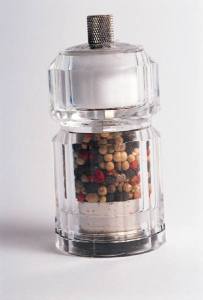 In efforts to reclaim a healthier lifestyle, a newly restored relationship with the kitchen has been growing again. The smell of real food in the house, heavy on light, fresh, whole foods and light on the oil, sugar, salt and other forbidden non-fruits of the grocery store processed food isles. We are also rediscovering the purpose of the dining room table, and the fine art of dinner conversation. This certainly is a vast improvement to fast food distractingly munched under gaze of a watching computer screen’s light.
In efforts to reclaim a healthier lifestyle, a newly restored relationship with the kitchen has been growing again. The smell of real food in the house, heavy on light, fresh, whole foods and light on the oil, sugar, salt and other forbidden non-fruits of the grocery store processed food isles. We are also rediscovering the purpose of the dining room table, and the fine art of dinner conversation. This certainly is a vast improvement to fast food distractingly munched under gaze of a watching computer screen’s light. A gift bag awaits the morning in the fridge, positioned right in front of the coffee creamer on the shelf. When he gets the cream to pour into my cup of coffee, there it will be for him waiting to greet him with a, “Happy Valentine’s Day” for me, while I am still struggling in bed with the fog of morning lupus brain. Every morning he wakes me with a cup of coffee in bed. This man deserves some very special love and appreciation!
A gift bag awaits the morning in the fridge, positioned right in front of the coffee creamer on the shelf. When he gets the cream to pour into my cup of coffee, there it will be for him waiting to greet him with a, “Happy Valentine’s Day” for me, while I am still struggling in bed with the fog of morning lupus brain. Every morning he wakes me with a cup of coffee in bed. This man deserves some very special love and appreciation! Often, many days go by when looking outside at the nearby trees is overlooked. The cold rainy day had soaked everyone as they made their way to the office. Lupus grumbled loudly as aching joints and stiffness responded to the damp chill penetrating the office.
Often, many days go by when looking outside at the nearby trees is overlooked. The cold rainy day had soaked everyone as they made their way to the office. Lupus grumbled loudly as aching joints and stiffness responded to the damp chill penetrating the office.

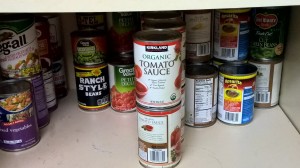






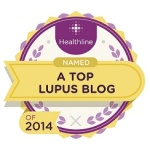



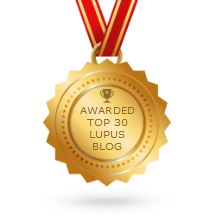

Recent Comments